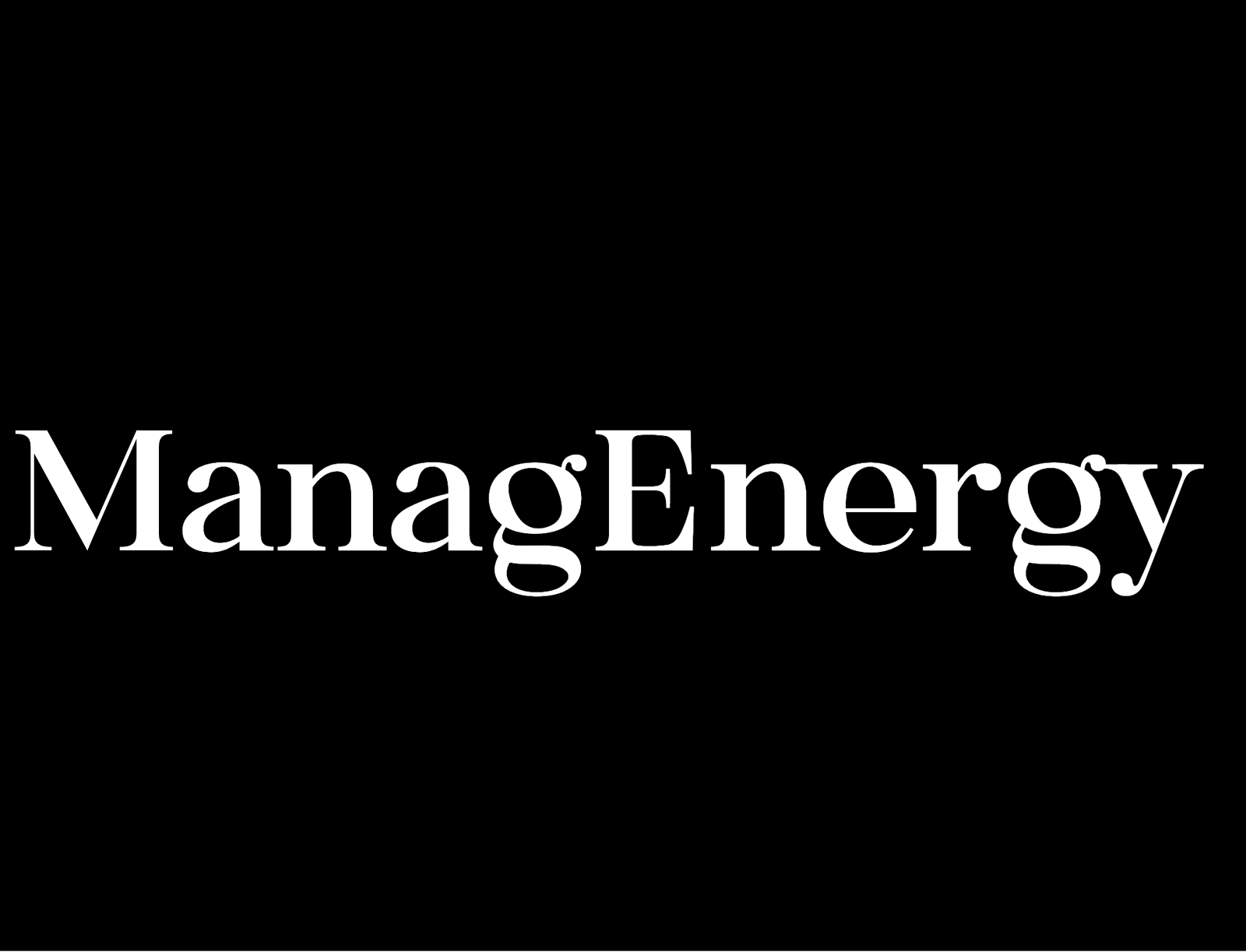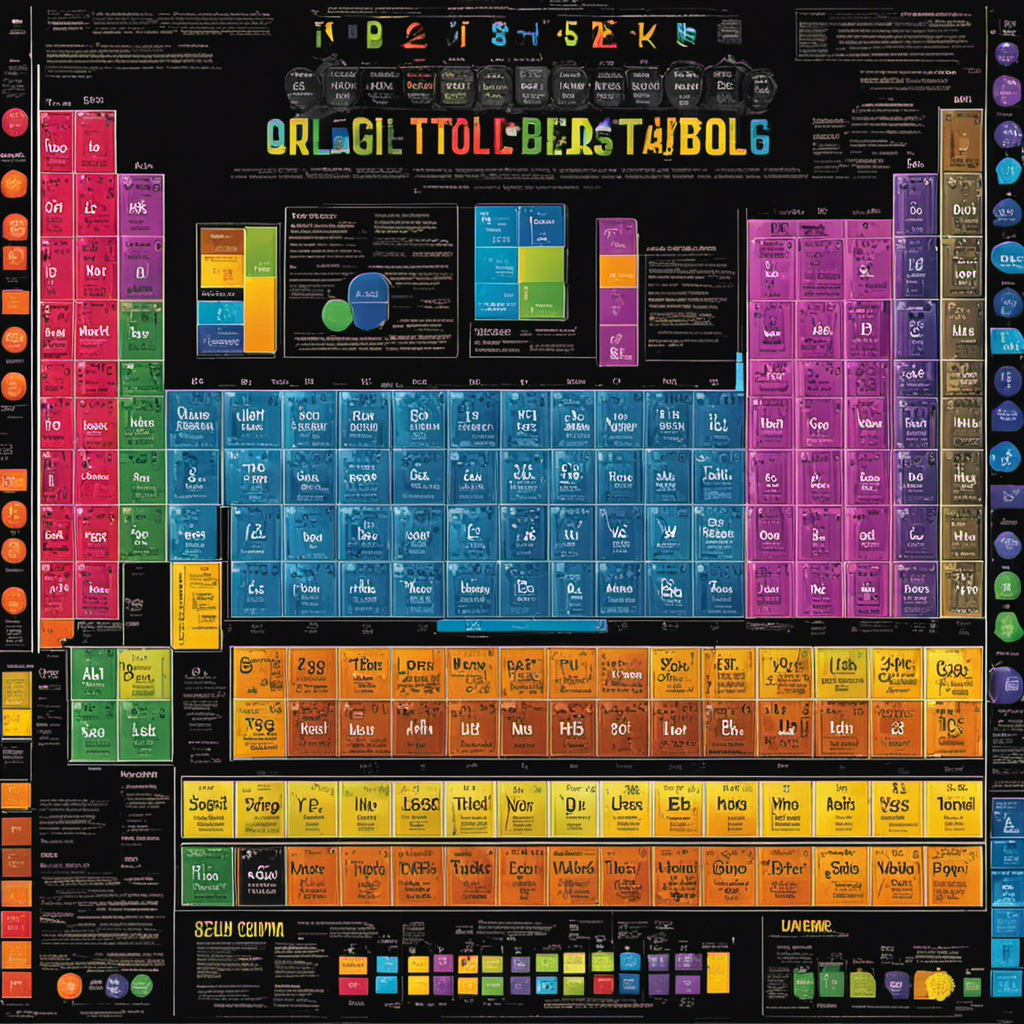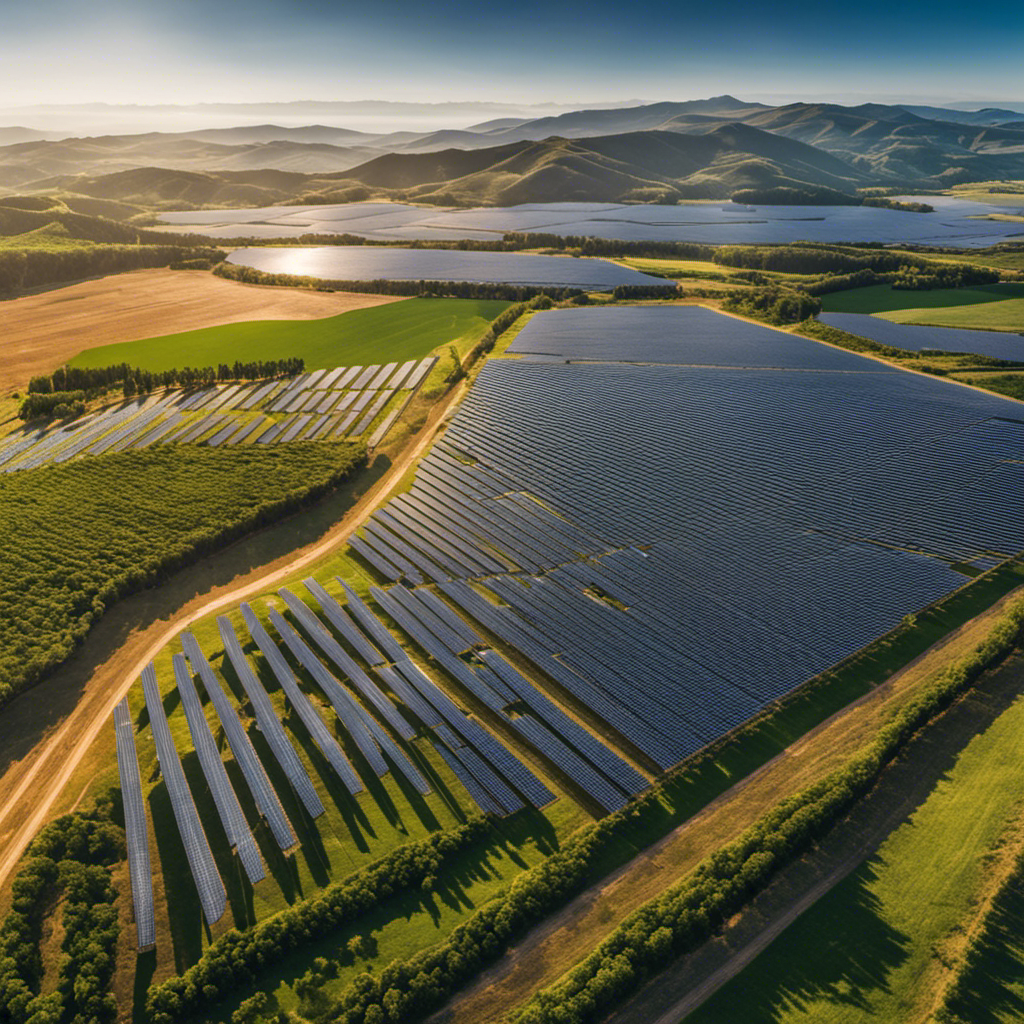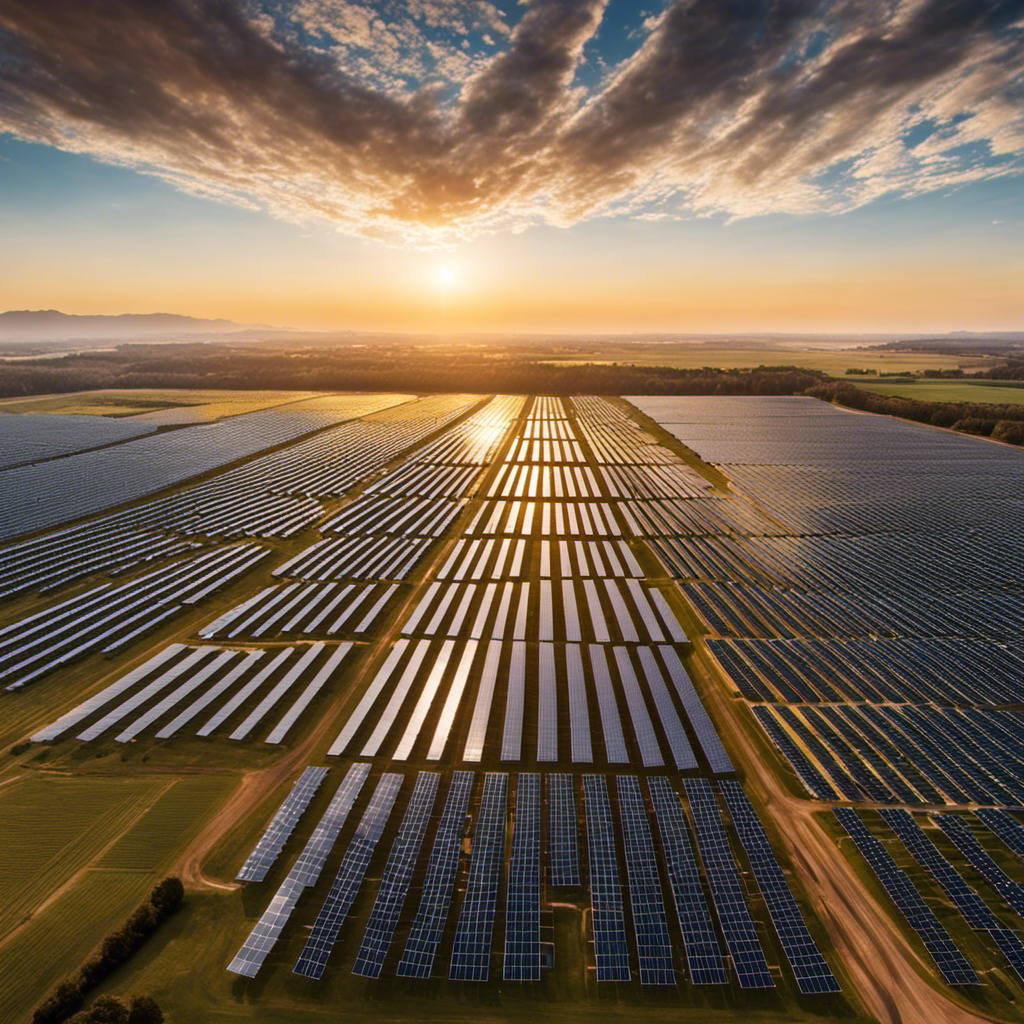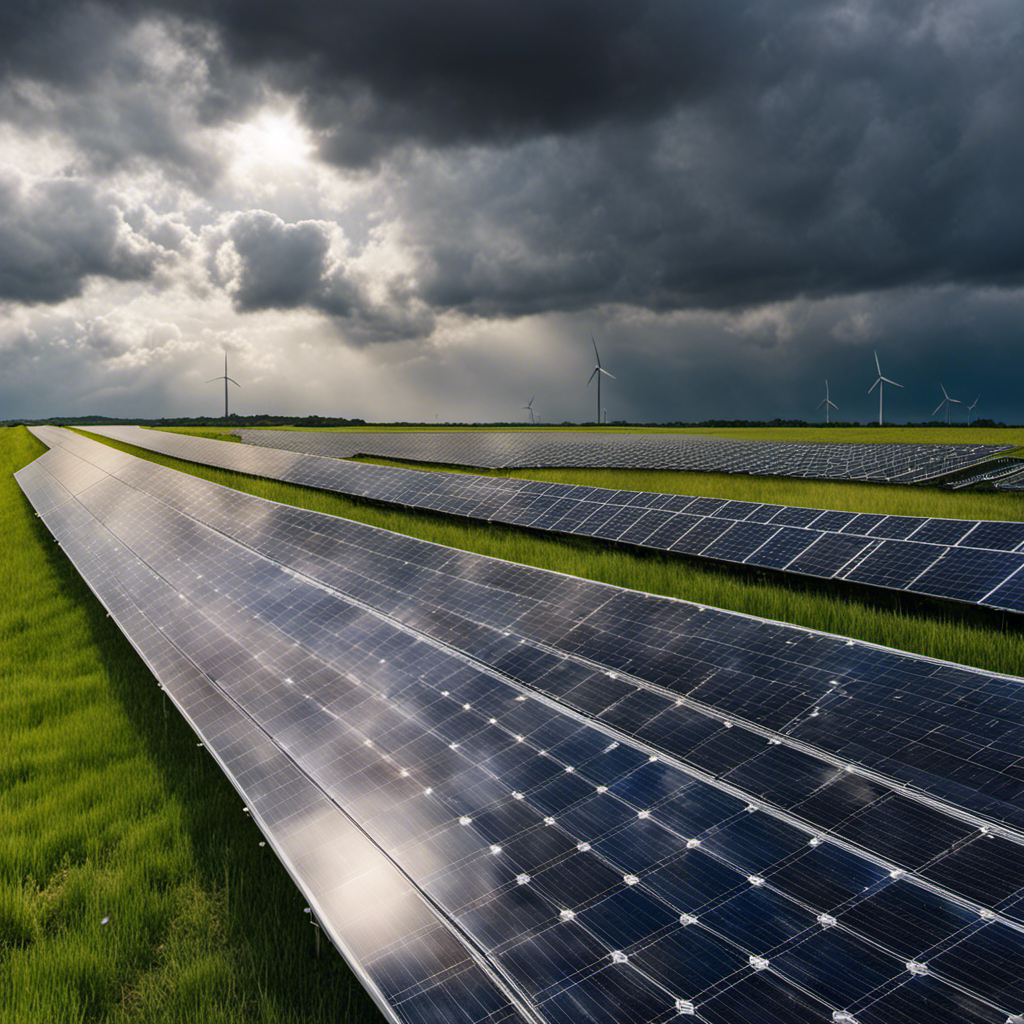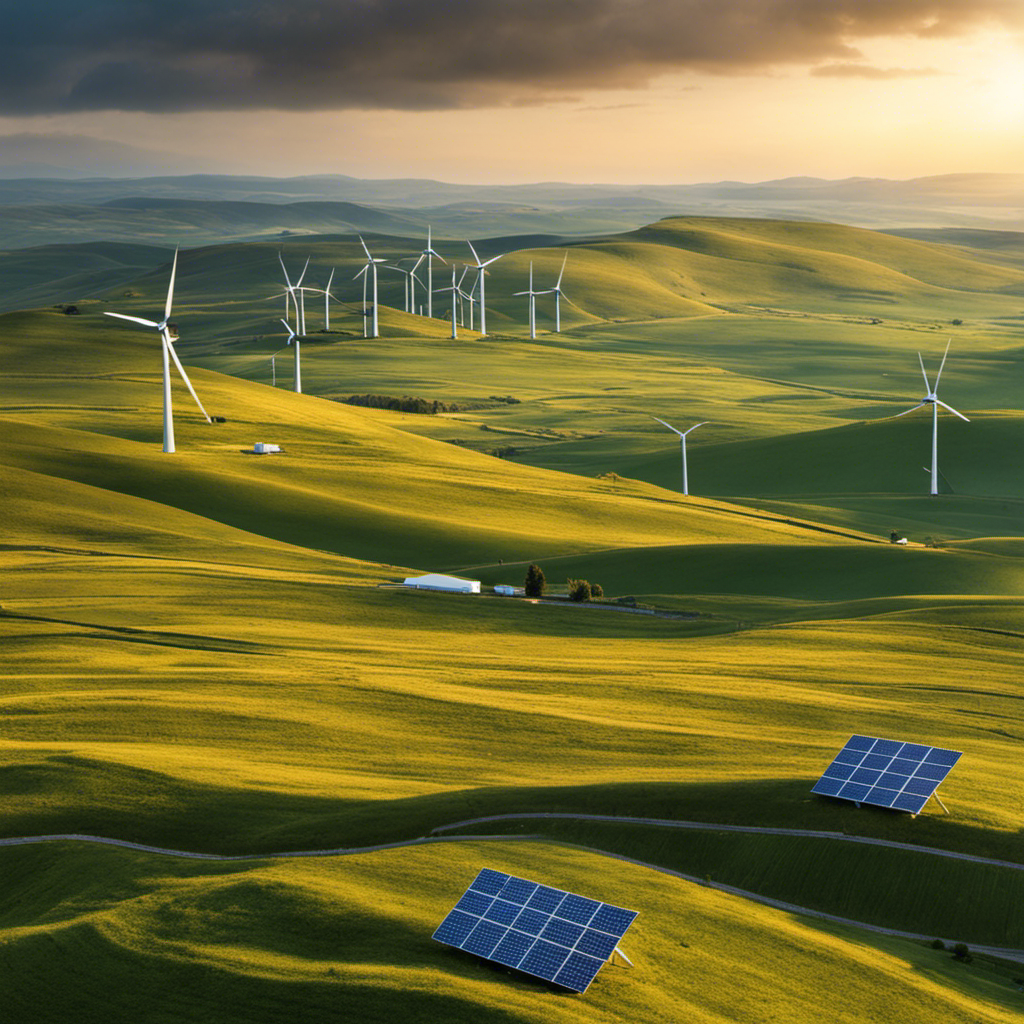Biomass
Sustainability and Benefits of Biomass Boilers: A Renewable Solution

I’ve found an amazing renewable energy solution that could transform how we warm our homes and water. Using low-carbon biomass such as miscanthus, biomass boilers provide sustainability along with incredible advantages.
Not only do they emit less noise and CO2 compared to other boilers, but they also improve air quality with flue gas condensers.
And here’s the best part: biomass is cheaper than petroleum and gas, making it a cost-effective option.
Stick around to learn more about the environmental impact, efficiency, and government incentives of biomass boilers.
Key Takeaways
- Miscanthus biomass is a sustainable and renewable biofuel that can be used in biomass boilers.
- Biomass boilers burn low-carbon biomass, reducing carbon emissions and improving air quality.
- Buffer tanks are necessary for thermal storage and hydraulic separation in biomass boiler systems.
- Biomass boilers are cost-effective, require regular maintenance, and are eligible for government incentives.
The Environmental Impact of Biomass Boilers
The environmental impact of biomass boilers is significant due to their low carbon emissions and ability to sequester carbon, making them a sustainable solution for heating and hot water.
One of the main advantages of using biomass boilers is their ability to burn low-carbon biomass, which reduces carbon emissions compared to traditional oil and coal boilers. This not only helps to mitigate climate change but also improves air quality by emitting fewer pollutants.
Additionally, biomass boilers can reduce annual emissions by up to 15.4 tonnes, further contributing to environmental benefits.
Furthermore, biomass boilers emit less noise compared to other types of boilers, making them a quieter and more environmentally friendly option.
Overall, the use of biomass boilers provides significant environmental advantages, making them a viable and sustainable choice for heating and hot water needs.
Why Biomass Boilers Are a Sustainable Heating Solution
As an environmentally conscious homeowner, I appreciate the sustainable heating solution that biomass boilers offer.
Here is why biomass boilers are a sustainable heating solution:
-
Biomass reduces deforestation: By using biomass as a fuel source, we can reduce our reliance on fossil fuels and minimize the need for cutting down trees for firewood or logging for heating purposes. This helps protect our forests and preserve biodiversity.
-
Biomass boilers improve air quality: Unlike traditional boilers that burn fossil fuels, biomass boilers release fewer pollutants into the air. The combustion of biomass produces lower levels of harmful emissions such as sulfur dioxide, nitrogen oxide, and particulate matter, which contribute to air pollution and respiratory problems.
-
Biomass is a renewable energy source: Biomass is derived from organic materials like wood pellets, agricultural waste, or dedicated energy crops. These resources can be replenished through sustainable practices, ensuring a constant supply of renewable energy for heating without depleting finite resources.
Reducing Carbon Emissions With Biomass Boilers
Installing a biomass boiler has allowed me to significantly reduce carbon emissions in my home. Biomass boilers are known for their high efficiency in burning low-carbon biomass, which results in reduced carbon emissions compared to traditional oil and coal boilers. In fact, biomass boilers can reduce annual emissions by up to 15.4 tonnes.
Not only do biomass boilers help in reducing carbon footprint, but they also offer cost-effective heating and hot water solutions. The installation costs of biomass boilers are generally lower compared to other heating systems, and the use of renewable biomass fuel is cheaper than petroleum and gas. Additionally, biomass boilers are eligible for government incentives, such as the Renewable Heat Incentive Scheme, further reducing the overall costs.
Exploring the Efficiency of Biomass Boilers
Exploring the efficiency of biomass boilers, I have found that they offer high energy conversion rates and can effectively utilize low-carbon biomass fuel. To maximize biomass boiler performance and improve efficiency, here are three key strategies:
-
Optimize combustion: By ensuring proper air-to-fuel ratio and maintaining optimal combustion temperatures, biomass boilers can achieve higher energy conversion rates. Regular maintenance and tuning can help minimize excess air and reduce heat loss, leading to improved efficiency.
-
Enhance insulation: Insulating the boiler and the surrounding pipes can prevent heat loss, allowing the system to operate more efficiently. This not only improves performance but also reduces fuel consumption.
-
Implement advanced control systems: Installing advanced control systems can help optimize the operation of biomass boilers. These systems can monitor and adjust parameters such as fuel feed rate, combustion temperature, and air supply, ensuring optimal performance and maximizing efficiency.
The Role of Flue Gas Condensers in Biomass Boilers
Using flue gas condensers in biomass boilers helps improve air quality and reduces emissions. Flue gas condensers are devices that recover heat from the flue gases produced during the combustion process. This recovered heat is then used to preheat the incoming combustion air, resulting in enhanced energy efficiency.
By lowering the temperature of the flue gases, flue gas condensers also help in reducing nitrogen oxide (NOx) emissions, which are harmful to the environment and human health. Furthermore, these condensers can capture and remove particulate matter, such as ash and soot, from the flue gases, thereby improving air quality.
Overall, the incorporation of flue gas condensers in biomass boilers is a proactive step towards both improving air quality and enhancing energy efficiency.
Buffer Tanks: Key Components of Biomass Boiler Systems
In my previous discussion, I highlighted the role of flue gas condensers in biomass boilers. Now, let’s delve into the importance of buffer tanks in biomass boiler systems.
-
Combining buffer tanks with solar power: Buffer tanks play a crucial role in integrating different technologies, such as biomass boilers and solar electricity. By combining these systems, we can maximize the utilization of renewable energy sources and reduce our reliance on non-renewable fuels.
-
Improving thermal storage through buffer tanks: Buffer tanks are essential for thermal storage and hydraulic separation in biomass boiler systems. They act as insulated containers that help regulate the temperature of the system. This improves the efficiency of the boiler and prevents it from overheating. The size of the buffer tank depends on the capacity of the system, ensuring optimal thermal storage for the specific requirements of the biomass boiler.
The Cost-Effectiveness of Biomass Boilers
Installing a biomass boiler can lead to significant cost savings on energy bills. When comparing the cost effectiveness of biomass boilers to solar power, it is important to analyze the long term financial benefits. Biomass boilers are powered by renewable biomass, which is a cheaper alternative to petroleum and gas. In addition to cost savings, biomass boilers also reduce carbon emissions, contributing to a cleaner environment. The table below highlights the potential cost savings of biomass boilers compared to solar power over a 20-year period.
| Biomass Boiler | Solar Power | |
|---|---|---|
| Installation Cost | $15,000 | $20,000 |
| Annual Savings | $1,500 | $1,000 |
| Total Savings | $30,000 | $20,000 |
| Payback Period | 10 years | 20 years |
As seen in the table, biomass boilers have a shorter payback period and higher total savings compared to solar power. This makes biomass boilers a more cost-effective solution for individuals and businesses looking to reduce their energy expenses. Additionally, the use of biomass fuel does not emit pollution during combustion, further emphasizing the sustainability and financial benefits of biomass boilers.
Maintaining and Servicing Biomass Boiler Systems
I regularly maintain and service my biomass boiler system to ensure its optimal performance and efficiency. This proactive approach has numerous benefits, including improving biomass boiler efficiency and maximizing its lifespan.
Here are three key reasons why regular maintenance is crucial for biomass boilers:
-
Preventing breakdowns: Regular maintenance helps identify and address potential issues before they escalate into costly breakdowns. By conducting regular inspections, cleaning the flue, heat exchanger, and checking for blocked pipes, I ensure that my boiler operates smoothly and efficiently.
-
Improving energy efficiency: Regular maintenance enhances the overall efficiency of the biomass boiler system. By cleaning the heat exchanger and ensuring proper fuel feeding, I optimize combustion, reducing fuel consumption and lowering emissions.
-
Extending lifespan: By maintaining my biomass boiler system, I extend its lifespan. Regular servicing helps prevent wear and tear, ensuring that all components are functioning optimally and reducing the risk of premature failure.
Government Incentives for Biomass Boiler Installation
By taking advantage of government incentives, I can significantly reduce the cost of installing a biomass boiler in my home. In addition to the cost savings, there are also numerous benefits to using biomass boilers.
They burn low-carbon biomass, reducing carbon emissions and helping to combat climate change. Biomass boilers emit less noise and have lower CO2 emissions compared to oil and coal boilers. They also have flue gas condensers that help reduce emissions and improve air quality. Furthermore, biomass boilers can be combined with other technologies, such as solar panels, through the use of buffer tanks, allowing for a more sustainable and efficient heating system.
As for solar power, advancements in solar panel technology have made it more cost-effective and efficient. Incentives for solar power installation, such as tax credits, further reduce the upfront cost and make it an attractive option for homeowners. Solar power is a sustainable energy source that relies on abundant sunlight, reducing dependence on fossil fuels and contributing to a cleaner environment. With ongoing advancements and investments in solar technology, it has the potential to become a major energy source in the future.
The Potential ROI of Biomass Boiler Systems
The potential return on investment for biomass boiler systems depends on factors such as fuel costs, maintenance expenses, and government incentives. Here are the long term benefits of investing in biomass boilers:
-
Economic Viability: Biomass boiler systems offer a cost-effective solution for heating and hot water. The use of renewable biomass fuel is cheaper than petroleum and gas, resulting in lower operational costs. Additionally, biomass boilers are eligible for government incentives, such as the Renewable Heat Incentive Scheme, which further enhances their economic viability.
-
Reduced Carbon Footprint: Biomass boilers burn low-carbon biomass, significantly reducing carbon emissions compared to oil and coal boilers. This not only helps combat climate change but also ensures compliance with environmental regulations.
-
Sustainable Energy Source: By utilizing biomass as a fuel, biomass boilers contribute to the sustainability of our energy systems. Biomass is a renewable resource that can be produced locally, reducing dependence on imported fuel sources. Moreover, biomass boilers can help sequester carbon and improve air quality.
Investing in biomass boilers not only provides a strong ROI but also contributes to a greener, more sustainable future.
Comparing the Sustainability of Biomass Boilers With Other Heating Options
Installing solar panels offers a greener alternative for heating compared to other options. When comparing the sustainability of biomass boilers with geothermal heating, biomass boilers have several advantages.
Biomass boilers burn low-carbon biomass, reducing carbon emissions and contributing to a cleaner environment. They emit less noise compared to other types of boilers. Flue gas condensers in biomass boilers help reduce emissions and improve air quality.
On the other hand, electric heating systems can have a negative impact on air quality due to the use of fossil fuels for electricity generation. Biomass boilers have lower CO2 emissions and total energy transfer points (TETPs) compared to oil and coal boilers.
These factors make biomass boilers a sustainable and environmentally friendly heating option.
Frequently Asked Questions
How Often Do You Need to Remove Ash From a Biomass Boiler?
I remove ash from my biomass boiler on a regular basis, usually every three to five days. Proper ash removal is essential for maintaining the efficiency and performance of the boiler.
There are various methods for ash disposal, including manual removal or using an ash removal system. It’s important to follow manufacturer guidelines and local regulations for proper ash disposal to ensure environmental sustainability.
Regular ash removal helps prevent blockages and ensures smooth operation of the biomass boiler.
What Are the Maintenance Requirements for Biomass Boilers?
Maintenance requirements for biomass boilers include regular fuel feeding every three to five days and regular removal of ash, which is a byproduct of combustion.
In addition, professional servicing is necessary to ensure efficiency and reduce the risk of breakdowns. This includes cleaning the flu, heat exchanger, and checking for blocked pipes.
Regular maintenance is crucial for optimal performance and longevity of the biomass boiler system.
What Government Incentives Are Available for Biomass Boiler Installation?
There are several government incentives available for biomass boiler installation, including government grants and financial incentives. These incentives aim to promote the use of renewable energy sources and reduce carbon emissions.
How Does the Cost of Biomass Fuel Compare to Petroleum and Gas?
The cost of biomass fuel is significantly lower compared to petroleum and gas. Biomass fuel is derived from renewable sources, such as organic materials, which makes it more affordable and sustainable.
Unlike petroleum and gas, biomass fuel does not emit pollution during combustion, reducing the environmental impact. By using biomass boilers, we can not only save on heating and hot water costs but also contribute to a cleaner environment by reducing carbon emissions.
Can Buffer Tanks Be Used in Combination With Other Renewable Technologies, Such as Solar Panels?
Buffer tanks are a crucial component for biomass boilers, ensuring proper thermal storage and hydraulic separation. They can also be used in combination with other renewable technologies, such as solar panels.
This combination offers numerous advantages, such as maximizing energy efficiency and reducing carbon footprint. By integrating solar panels with buffer tanks, excess energy produced by the panels can be stored and used when the sun is not shining.
This helps to further optimize renewable energy utilization and promotes a sustainable energy system.
Conclusion
In conclusion, biomass boilers offer a sustainable and cost-effective solution for heating and hot water.
Imagine a world where our homes are warmed by the gentle crackling of biomass, as carbon emissions are reduced and air quality improves.
With the use of low-carbon biomass such as miscanthus, we can harness the power of renewable energy while supporting the growth of fast-growing crops.
By incorporating flue gas condensers and regular maintenance, biomass boilers become even more efficient and environmentally friendly.
With government incentives and a strong return on investment, the future of biomass boilers is bright.
Let’s embrace this renewable solution and pave the way for a greener tomorrow.
Biomass
The Origins of Biomass: Unlocking Renewable Energy Potential

I’ve explored the beginnings of biomass, discovering its potential as an alternative source of renewable energy. Ranging from waste produced in agriculture and forestry to municipal solid waste and yet-to-be-utilized resources such as wood leftovers and algae, biomass offers a broad spectrum of opportunities.
Through processes like combustion, gasification, and pyrolysis, biomass can be converted into fuels, chemicals, and electricity. But what about the cost and environmental impact?
Join me as we explore the data behind the affordability and sustainability of biofuels made from biomass, and how they can revolutionize the energy sector.
Key Takeaways
- Biomass can be derived from a variety of sources including agricultural and forestry wastes, municipal solid waste, and untapped resources like wood waste, animal and human waste, sewage waste, and algae.
- Biomass can be converted into fuels, chemicals, and electricity using different processes such as combustion, gasification, pyrolysis, and liquefaction.
- The gasification process is the most efficient method for converting biomass to fuels.
- The cost of biofuels produced from biomass varies, with algal oil being more expensive than soybean oil, and factors like harvesting algae for biofuels affect the production cost.
The History of Biomass as an Energy Source
I’ve learned that the history of biomass as an energy source is quite fascinating. The evolution of biomass technology over time has been driven by advancements in research and development.
From traditional biomass sources like wood and animal waste to modern methods such as gasification and pyrolysis, the possibilities for harnessing renewable energy from biomass have expanded greatly.
Government policies have played a significant role in the growth of biomass as an energy source. Incentives and subsidies have encouraged investment in biomass technology, leading to increased adoption and utilization. Additionally, regulations promoting the use of renewable energy sources have pushed for the integration of biomass into the energy sector.
The impact of government policies on the growth of biomass as an energy source cannot be understated, as they have created an environment conducive to its development and utilization.
The Role of Agricultural and Forestry Wastes in Biomass Production
Agricultural and forestry wastes play a crucial role in the production of biomass. These wastes, which include crop residues, wood chips, and sawdust, can be converted into bioenergy through various processes such as combustion, gasification, and anaerobic digestion. By utilizing these wastes, we can maximize resource utilization and reduce the reliance on fossil fuels.
To emphasize the potential of agricultural and forestry waste for sustainable bioenergy, let’s take a look at the following table:
| Waste Type | Biomass Potential | Conversion Process |
|---|---|---|
| Crop residues | High | Combustion |
| Wood waste | Moderate | Gasification |
| Sawdust | High | Anaerobic digestion |
As shown in the table, crop residues and sawdust have high biomass potential, making them ideal for bioenergy production. Gasification and anaerobic digestion are efficient conversion processes for wood waste and sawdust respectively.
Exploring the potential of agricultural and forestry waste for sustainable bioenergy is crucial in our efforts to reduce greenhouse gas emissions and promote a cleaner and greener future. By harnessing these wastes, we can not only generate renewable energy but also contribute to waste management and sustainable resource utilization.
Exploring Different Types of Biomass Fuels
Converting various organic materials such as wood chips and algae into usable fuels is a key aspect of exploring different types of biomass fuels. Biomass fuels have the potential to revolutionize the transportation sector by reducing our dependence on fossil fuels and decreasing greenhouse gas emissions.
By utilizing biomass resources, we can create renewable fuels that can power vehicles, reducing the environmental impact of transportation. Additionally, the production of biomass fuels can have a positive impact on rural economies and job creation. The cultivation, harvesting, and processing of biomass resources can create employment opportunities, particularly in rural areas where traditional industries may be declining.
Furthermore, the development of biomass technologies can stimulate economic growth by attracting government incentives and investment. By exploring different types of biomass fuels, we can unlock their potential applications in the transportation sector and contribute to rural economies and job creation.
Harnessing the Power of Municipal Solid Waste for Renewable Energy
Municipal solid waste can be harnessed to generate renewable energy, benefiting both the environment and the local community. This presents a number of challenges and opportunities in utilizing municipal solid waste for renewable energy.
Innovative technologies for maximizing energy production from municipal solid waste play a crucial role in its efficient utilization. Anaerobic digestion is a process that converts organic waste into biogas, which can be used for electricity generation. Incineration of solid waste can produce heat, which can be used for steam generation and subsequently electricity production. Gasification is another innovative technology that converts solid waste into synthetic gas, which can be used as a fuel for power generation. Landfill gas recovery systems can capture methane emissions from landfills and convert them into usable energy.
These technologies not only help reduce the dependence on fossil fuels but also address the issue of waste management. With proper implementation and investment in these innovative technologies, municipal solid waste can be transformed into a valuable renewable energy resource, providing a sustainable solution to waste management and energy generation.
Untapped Biomass Resources: Wood Waste, Animal and Human Waste, Sewage Waste, and Algae
I can see that there are several untapped resources for biomass, such as wood waste, animal and human waste, sewage waste, and algae. These resources have immense potential in biomass production and renewable energy generation. Let’s take a closer look at the potential applications of algae in biomass production and the challenges and opportunities of utilizing sewage waste for renewable energy.
| Algae in Biomass Production | Utilizing Sewage Waste for Renewable Energy |
|---|---|
| Algae can be used to produce biofuels, such as biodiesel and bioethanol. Algal biomass has a high oil content, making it a promising feedstock for fuel production. Algae can also be used to produce high-value products like omega-3 fatty acids and pigments. | Sewage waste contains organic matter that can be converted into biogas through anaerobic digestion. Biogas can be used for electricity generation and heating. However, the challenges lie in the treatment of sewage waste to remove harmful contaminants and pathogens. Additionally, the efficiency and scalability of sewage waste-to-energy processes need to be improved for widespread adoption. |
Exploring these untapped resources for biomass not only helps in reducing waste and environmental pollution but also contributes to the development of sustainable and renewable energy solutions. With further research and technological advancements, we can unlock the full potential of wood waste, animal and human waste, sewage waste, and algae in biomass production, paving the way for a greener and more sustainable future.
Understanding the Technology Behind Biomass Conversion
In the previous subtopic, we discussed the untapped biomass resources such as wood waste, animal and human waste, sewage waste, and algae. Now, let’s delve into the technology behind biomass conversion and explore the advancements made in this field.
-
The role of enzymes in biomass conversion: Enzymes play a crucial role in breaking down complex biomass molecules into simpler components. They act as catalysts, speeding up the conversion process and increasing efficiency.
-
Advancements in catalyst technology for biomass conversion: Catalysts are substances that facilitate chemical reactions without being consumed. In recent years, there have been significant advancements in catalyst technology for biomass conversion. These advancements have led to improved reaction rates, selectivity, and overall process efficiency.
-
Catalysts like zeolites, metal oxides, and supported metals have shown promise in biomass conversion. They can enhance the conversion of biomass into fuels, chemicals, and electricity.
-
Researchers are also exploring the use of hybrid catalysts that combine the benefits of different catalyst types. This approach can further enhance the efficiency and selectivity of biomass conversion processes.
-
The development of tailored catalysts specific to biomass feedstocks is an area of ongoing research. By optimizing catalysts for different biomass sources, it is possible to achieve higher conversion yields and minimize unwanted byproducts.
Overall, advancements in enzyme and catalyst technology are crucial for improving the efficiency and economics of biomass conversion. These advancements pave the way for a more sustainable and renewable energy future.
Biomass Combustion: A Major Source of Renewable Power
As an engineer, I have witnessed the significant contribution of biomass combustion to the generation of renewable power.
Biomass combustion, the burning of organic materials like wood, agricultural residues, and dedicated energy crops, is a major source of renewable power in many biomass power plants. This technology converts biomass into heat and electricity, providing a sustainable alternative to fossil fuels.
While biomass combustion has numerous benefits, it is important to consider its impact on air quality. The combustion process releases pollutants such as particulate matter, nitrogen oxides, and volatile organic compounds. However, modern biomass power plants are equipped with advanced emission control technologies, including electrostatic precipitators and scrubbers, to minimize these emissions.
Additionally, biomass combustion offers various benefits, including reduced greenhouse gas emissions compared to fossil fuels and the potential for waste management and land restoration.
Overall, biomass combustion plays a crucial role in the transition towards a cleaner and more sustainable energy future.
Thermochemical Processes: Gasification, Pyrolysis, and Liquefaction
Gasification, pyrolysis, and liquefaction are thermochemical processes that break down biomass into various forms of fuel, such as syngas, bio-oil, and biochar. These processes offer several advantages in the conversion of biomass into usable energy:
-
Efficient Conversion: Thermochemical processes are highly efficient in converting biomass into fuel, allowing for maximum energy extraction.
-
Versatile Outputs: Gasification produces syngas, which can be used for electricity generation or converted into liquid fuels. Pyrolysis produces bio-oil, which can be used as a replacement for petroleum-based fuels. Liquefaction produces biochar, a valuable soil amendment.
-
Waste Utilization: Thermochemical processes can utilize a wide range of biomass feedstocks, including agricultural and forestry residues, municipal waste, and even algae.
-
Carbon Neutrality: Biomass is considered carbon neutral since the carbon dioxide released during combustion is offset by the carbon dioxide absorbed during plant growth.
-
Renewable Energy Source: Thermochemical processes contribute to the development of a sustainable and renewable energy sector.
However, there are challenges in implementing thermochemical processes:
-
Feedstock Availability: Ensuring a consistent and reliable supply of biomass feedstock can be a logistical challenge, especially when relying on diverse waste materials.
-
Technology Complexity: Thermochemical processes require sophisticated equipment and precise control systems, which can be costly to implement and maintain.
-
Environmental Concerns: While biomass is renewable, the emissions from thermochemical processes must be carefully managed to minimize air pollution and ensure environmental sustainability.
-
Economic Viability: The economic viability of thermochemical processes depends on factors such as feedstock costs, energy prices, and government incentives. It can be challenging to achieve cost-competitive production.
-
Scale-up and Integration: Scaling up thermochemical processes to commercial levels and integrating them into existing energy infrastructure can be complex, requiring significant investment and coordination.
Addressing these challenges will be crucial in realizing the full potential of thermochemical processes for biomass conversion and advancing towards a sustainable energy future.
Factors Influencing Biomass Conversion Process Selection
One factor that influences the selection of a biomass conversion process is the end usage and desired products. Various factors need to be considered when choosing a biomass conversion process, including the feedstock availability, technical feasibility, financial viability, and environmental impact. To aid in the decision-making process, a table is presented below, outlining the key factors influencing biomass conversion process selection and the challenges associated with biomass conversion technology.
| Factors Influencing Biomass Conversion Process Selection | Challenges in Biomass Conversion Technology |
|---|---|
| Feedstock availability | Efficient biomass collection and storage |
| Technical feasibility | Optimization of conversion processes |
| Financial viability | Cost-effective production and scale-up |
| Environmental impact | Minimizing emissions and waste management |
These factors play a crucial role in determining the most suitable conversion process for a specific application. Addressing the challenges in biomass conversion technology will pave the way for a more sustainable and efficient utilization of biomass resources.
Gasification: The Most Efficient Method for Biomass to Fuel Conversion
I believe that gasification is the most efficient method for converting biomass into fuel. Gasification offers several advantages over alternative biomass conversion methods:
-
Higher Efficiency: Gasification has a higher energy conversion efficiency compared to other methods like combustion or pyrolysis. This means that more energy can be extracted from the same amount of biomass.
-
Versatility: Gasification can convert a wide range of biomass feedstocks, including agricultural and forestry waste, into valuable fuels such as syngas or bio-oil. This versatility allows for the utilization of various biomass resources.
-
Reduced Environmental Impact: Gasification produces lower emissions of greenhouse gases and pollutants compared to other biomass conversion methods. This makes it a more environmentally friendly option for producing renewable fuels.
-
Co-Production of Electricity: Gasification can be integrated with combined heat and power (CHP) systems to produce both electricity and heat. This co-production of electricity can enhance the overall efficiency and sustainability of biomass-to-fuel conversion.
-
Scalability: Gasification technology is scalable, which means it can be applied to both small-scale and large-scale applications. This scalability makes it suitable for a wide range of industries and energy needs.
Examining the Cost of Biofuels From Renewable Sources
As a consumer, I’m interested in understanding the cost of biofuels made from renewable sources. The economic viability of biofuels from renewable sources is a crucial factor in their widespread adoption.
One key aspect that affects the cost of biofuels from biomass is the impact of government incentives. Government incentives play a significant role in reducing the cost of biofuels and making them more affordable for consumers. These incentives can include tax credits, grants, and loan guarantees, which help offset the high production costs associated with biofuels.
The Potential Affordability of Biofuels Made From Inedible Ingredients
The affordability of biofuels made from inedible ingredients is a topic of great interest in the renewable energy sector. As we explore the potential of utilizing biomass resources for biofuel production, there are several challenges that need to be addressed. Here are some key points to consider:
-
Scaling up production: Scaling up the production of biofuels made from inedible ingredients can pose significant challenges. The availability and consistent supply of inedible biomass feedstocks need to be ensured to meet the increasing demand for biofuels.
-
Technological advancements: Developing efficient and cost-effective conversion technologies is crucial for making biofuels from inedible ingredients affordable. Continued research and development in this area are necessary to optimize the conversion processes and improve overall efficiency.
-
Government policies and incentives: Government policies play a vital role in promoting the affordability of biofuels made from inedible ingredients. Incentives such as tax credits, grants, and subsidies can encourage investment in biofuel production and help offset the initial costs associated with scaling up production.
-
Infrastructure development: Adequate infrastructure, such as storage facilities, transportation networks, and refining capabilities, is essential for the successful scaling up of biofuel production. Investments in infrastructure development can help reduce costs and improve the affordability of biofuels made from inedible ingredients.
-
Market demand and competition: The market demand for biofuels made from inedible ingredients can influence their affordability. Increasing demand and competition in the biofuel market can drive innovation, leading to cost reductions and improved affordability.
Overall, addressing these challenges and leveraging government policies and incentives are crucial steps in promoting the affordability of biofuels made from inedible ingredients. By overcoming these obstacles, we can unlock the potential of biomass as a renewable energy source and contribute to a more sustainable future.
Comparing the Cost of Different Biofuels Produced From Biomass
Scaling up production of biofuels made from biomass requires careful consideration of the cost differences between various types of biofuels. To compare the sustainability of different biofuels produced from biomass, it is important to analyze the market potential of these fuels in the transportation sector.
When comparing biofuels produced from biomass, factors such as production costs, feedstock availability, and environmental impact need to be taken into account. For example, while algal oil is a promising biofuel option, it is more expensive to produce compared to soybean oil.
Additionally, the sustainability of biofuels can vary depending on the land used for production and the greenhouse gas emissions associated with their production process. Analyzing these factors will help us determine the most cost-effective and sustainable biofuel options for scaling up production.
Assessing the Environmental Impact of Biomass Biofuels
Analyzing the environmental impact of biomass biofuels, I am interested in studying the greenhouse gas emissions associated with their production process. To thoroughly assess the sustainability of biomass biofuels, it is crucial to evaluate not only their environmental impact but also the social implications of biomass production.
Here are five key aspects to consider:
-
Land use: The land used for biomass production can have significant ecological and social consequences, such as deforestation and displacement of local communities.
-
Water usage: Biomass production requires water for irrigation, which can lead to water scarcity and degradation of aquatic ecosystems.
-
Air quality: The combustion of biomass can release pollutants into the air, contributing to air pollution and respiratory health issues.
-
Biodiversity: Converting natural habitats into biomass production areas can result in the loss of biodiversity and disruption of ecosystems.
-
Social equity: The production of biomass should consider the fair distribution of benefits and address potential social inequalities that may arise.
To ensure the sustainable development of biomass biofuels, it is crucial to address these environmental and social factors through comprehensive evaluation and mitigation strategies.
Frequently Asked Questions
What Are the Potential Job Creation and Forest Management Benefits of Biomass Technology?
Job creation and forest management are two significant benefits of biomass technology.
By utilizing biomass resources, such as agricultural and forestry wastes, we can create new job opportunities in the renewable energy sector.
Additionally, the sustainable management of forests becomes crucial as it ensures a continuous supply of biomass feedstock.
This not only promotes the growth of the renewable energy industry but also supports the conservation and sustainable use of our forests, contributing to a greener future.
What Are Some of the Technological Challenges Involved in Catalytic Synthesis for Biomass Conversion to Biofuels?
In catalytic synthesis for biomass conversion to biofuels, there are several technological challenges to overcome. One interesting statistic is that the efficiency of the process greatly depends on the choice of catalyst. Finding the right catalyst that can effectively convert biomass into biofuels is crucial for the success of this technology.
Additionally, maintaining the stability and activity of the catalyst over prolonged periods presents another challenge. These technological hurdles require continued research and development to improve the efficiency and viability of biomass-to-biofuels conversion.
What Government Incentives Exist for Various Biomass-To-Biofuels Pathways?
Government incentives play a crucial role in promoting the development of various biomass-to-biofuels pathways. These incentives are designed to encourage the use of renewable energy sources and reduce dependence on fossil fuels. They can include tax credits, grants, loan programs, and renewable energy standards.
How Does Transportation Sector Benefit From Biofuels Produced From Biomass?
The transportation sector can reap numerous benefits from biofuels produced from biomass. These fuels offer a renewable alternative to fossil fuels, reducing greenhouse gas emissions and mitigating climate change.
Furthermore, the production of biofuels from biomass can create job opportunities and promote sustainable forest management.
However, there are technological challenges in converting biomass into biofuels, requiring catalytic synthesis. Government incentives play a crucial role in supporting the development of this sector.
Further research is needed to fully understand the environmental impact and optimize the use of biomass for biofuel production.
What Further Research Is Needed to Fully Understand the Environmental Impact of Biofuels?
Further research is needed to fully understand the environmental impact of biofuels. Scientists should conduct comprehensive environmental research to assess the lifecycle emissions, land use changes, and potential ecological impacts of biofuels.
This research should also consider the impacts on biodiversity, water resources, and air quality. Additionally, studies should explore the sustainability of different biomass feedstocks and the effectiveness of mitigation strategies to minimize any negative environmental consequences.
Such research will provide crucial data for policymakers and industry stakeholders to make informed decisions about the future of biofuels.
Conclusion
In conclusion, the origins of biomass as a renewable energy source hold great promise for a sustainable future. Through the use of various processes, biomass can be converted into fuels, chemicals, and electricity, offering a viable alternative to fossil fuels.
While the cost and environmental impact of biofuels vary, continued research and development are crucial in unlocking the full potential of biomass technology. By harnessing agricultural and forestry wastes, municipal solid waste, and untapped resources, we can create a greener and more efficient energy sector.
Let us embark on this journey towards a cleaner and brighter future.
Biomass
Efficient Biomass Storage for Sustainable Energy

I’ve come across a revolutionary theory that could transform how we preserve biomass for renewable energy.
The key lies in maximizing efficiency through advanced technologies like the ANDRITZ circular pile-reclaimer and domes.
By calculating the storage using the embodied energy principle, we can determine the true potential of biomass as a renewable energy source.
But it doesn’t stop there. Factors such as carbon offsets, cost considerations, and environmental impact must also be taken into account.
Join me as we explore the possibilities of efficient biomass storage for a greener future.
Key Takeaways
- Technologies such as ANDRITZ circular pile-reclaimer, domes, and luffing are available for biomass storage.
- Biomass storage is important for biorefineries and other industries.
- The efficiency of biomass as a renewable energy source needs to be considered.
- The calculation of biomass storage using the embodied energy principle is crucial for sustainable energy.
Biomass Storage Technologies: Maximizing Efficiency
I’ve learned that maximizing efficiency in biomass storage technologies is crucial for sustainable energy production. Biomass storage techniques play a key role in optimizing the utilization of biomass resources. Effective storage methods can enhance the availability and quality of biomass feedstock, ensuring a reliable supply for energy production.
Various techniques, such as pile-reclaimers, domes, and luffing systems, are employed to store biomass efficiently. These technologies minimize the loss of biomass due to degradation and provide better control over storage conditions.
By optimizing biomass storage, we can reduce the costs associated with transportation and mitigate environmental risks. Additionally, proper storage techniques contribute to the overall efficiency of biomass energy systems, allowing for a more sustainable and reliable source of renewable energy.
Therefore, investing in biomass storage optimization is essential for maximizing the potential of biomass as a renewable energy source.
Carbon Footprint and Parity Times of Biomass Energy
Calculating and comparing the carbon footprint and parity times of different biomass energy scenarios is crucial for understanding the environmental impact and potential benefits of this renewable fuel source. By conducting carbon offset calculations and implementing effective biomass plantation management strategies, we can optimize the carbon footprint of biomass energy production.
To illustrate this, let’s analyze the carbon offset calculations and parity times for three different biomass energy scenarios:
| Scenario | Carbon Footprint (tons CO2/year) | Parity Time (years) |
|---|---|---|
| Scenario 1 | 1000 | 5 |
| Scenario 2 | 2000 | 8 |
| Scenario 3 | 500 | 3 |
From the table, we can observe that Scenario 3 has the lowest carbon footprint and the shortest parity time, indicating its potential as a more sustainable biomass energy option. This highlights the importance of efficient biomass plantation management in reducing carbon emissions and achieving quicker carbon offsets. By focusing on optimizing biomass production and minimizing carbon-intensive practices, we can contribute to a greener and more sustainable energy future.
Cost Considerations of Efficient Biomass Storage
Transportation costs and on-site storage play a significant role in determining the overall cost of implementing biomass as a renewable fuel source. To fully understand the cost considerations of efficient biomass storage, it is important to analyze the embodied energy and transportation costs involved.
Here are five key points to consider:
-
Embodied energy analysis: Evaluating the energy consumed throughout the biomass storage process helps identify areas where efficiency can be improved and costs reduced.
-
Transportation costs: The distance between biomass sources and storage facilities directly impacts transportation costs, making it essential to minimize transportation distances.
-
On-site storage optimization: Efficient storage systems can reduce costs by maximizing storage capacity while ensuring easy access for biomass transportation.
-
Supply chain management: Effective planning and coordination of biomass supply chains can help minimize transportation costs and ensure a steady supply of biomass.
-
Technology advancements: Utilizing innovative storage technologies and equipment can enhance efficiency, reduce costs, and improve the overall viability of biomass as a renewable fuel source.
Environmental Impact of Biomass Energy Storage
Reducing emissions from biomass energy storage facilities is crucial in mitigating air quality concerns and promoting cleaner alternatives to fossil fuels.
As we strive to transition to more sustainable energy sources, it is important to understand the potential environmental impact of biomass energy storage.
One aspect to consider is the potential for biomass residues to act as a carbon sink. By properly managing biomass storage, we can ensure that these residues are utilized efficiently and effectively, reducing their impact on greenhouse gas emissions.
Additionally, it is essential to assess the impact of biomass storage on local ecosystems. Proper storage practices can help minimize the disruption to surrounding habitats and protect biodiversity.
Other Considerations for Sustainable Biomass Storage
When considering other aspects of biomass storage, it is important to explore the potential applications of biomass heat in various sectors such as power plants, vehicles, and buildings.
-
Stationary fuel cells: These fuel cells use biomass heat to generate electricity for remote areas, reducing the reliance on traditional power grids.
-
Hydrogen fuel cells: Biomass heat can be used to produce hydrogen fuel, which can then power vehicles, providing a clean and sustainable alternative to fossil fuels.
-
Enhanced energy efficiency: By utilizing biomass heat in power plants, vehicles, and buildings, we can improve the overall energy efficiency of these sectors, reducing greenhouse gas emissions and promoting sustainable energy practices.
-
Renewable energy integration: Biomass heat can be integrated into existing infrastructure, allowing for a seamless transition to renewable energy sources and reducing dependence on fossil fuels.
-
Environmental benefits: Utilizing biomass heat in various sectors can help to reduce carbon emissions and mitigate climate change, while also promoting the use of renewable resources for a greener future.
Frequently Asked Questions
What Are the Key Factors to Consider When Calculating the Efficiency of Biomass Storage for Sustainable Energy?
Calculating efficiency and exploring storage solutions are crucial when considering biomass storage for sustainable energy. Factors to consider include the type of biomass, its moisture content, and the storage method used.
Additionally, the energy required for storing and retrieving biomass should be taken into account. Analyzing the overall system efficiency, including transportation and processing, is essential.
How Does the Carbon Footprint of Biomass Energy Compare to Other Renewable Energy Sources?
When comparing the carbon footprint of biomass energy to other renewable sources, it’s important to consider the environmental impact. According to a recent study, biomass energy has a lower carbon footprint than fossil fuels, but higher than wind and solar power.
This is due to the emissions released during biomass combustion. However, when biomass residues are used, the net emissions can be reduced, making it a more sustainable option.
Conducting detailed environmental impact analyses will help determine the most efficient and eco-friendly energy sources.
What Are the Potential Cost Implications of Transporting Biomass for Energy Production?
Potential solutions for reducing the cost implications of transporting biomass for energy production include:
- Optimizing transportation routes
- Improving logistics
- Investing in local biomass resources
By strategically locating biomass facilities near biomass sources, transportation costs can be minimized. Additionally, using advanced technologies such as densification and pelletization can increase the energy density of biomass, reducing transportation volumes.
These measures can lead to economic benefits by lowering transportation expenses and making biomass energy more competitive with fossil fuels.
What Are the Main Air Quality Concerns Related to Biomass Burning for Energy?
Air pollution and health risks are the main concerns related to biomass burning for energy. When biomass is burned, it releases pollutants such as particulate matter, carbon monoxide, nitrogen oxides, and volatile organic compounds.
These pollutants can have detrimental effects on air quality and human health, leading to respiratory problems, cardiovascular diseases, and other health issues.
It is important to implement pollution control devices and proper management practices to minimize the environmental and health impacts of biomass burning for energy production.
How Does Biomass Storage Contribute to Reducing Dependence on Fossil Fuels and Drilling?
Biomass storage plays a crucial role in reducing our dependence on fossil fuels and drilling. By efficiently storing biomass, we can ensure a steady supply of renewable alternatives for energy production.
This helps to decrease emissions and mitigate the environmental impact of burning fossil fuels. Furthermore, biomass storage allows us to harness the potential of biomass heat in power plants, vehicles, and buildings, providing a sustainable and cost-effective solution for our energy needs.
Conclusion
In conclusion, efficient biomass storage is a critical component of sustainable energy production. By employing technologies such as the ANDRITZ circular pile-reclaimer and domes, we can maximize the efficiency of biomass storage.
Factors like plantation management and carbon offsets play a significant role in determining the parity times and carbon footprint of biomass energy. Additionally, cost considerations, including transportation, availability, and the impact of different fuel types, must be taken into account.
It is essential to address the environmental impact of biomass energy, particularly air quality concerns and emissions from wood-fired power plants. By implementing efficient biomass storage, we can reduce our dependence on drilling and associated costs, making biomass a viable and sustainable energy option.
Like a beacon guiding us towards a greener future.
Biomass
Biomass Energy and Deforestation: Unveiling the Environmental Impact

Exploring the subject of biomass energy and deforestation, I find myself navigating through a complicated maze of ecological effects. It feels akin to unraveling the layers of a dense forest, uncovering the concealed consequences of employing biomass for energy.
Chatham House reports have raised concerns about the assumption that forest-bioenergy is carbon neutral, shedding light on the inefficiency and high greenhouse gas emissions associated with burning trees for energy.
Moreover, vulnerable communities bear the brunt of these negative effects, while the biomass industry continues to grow rapidly.
In this article, we will explore the efficiency and carbon neutrality of biomass energy, questioning its sustainability in comparison to alternative renewable sources.
Key Takeaways
- Expanded wood burning in Europe and the assumption of forest-bioenergy being carbon neutral are flawed and dangerous.
- Biomass energy, particularly from burning trees, adds more carbon to the atmosphere and is not carbon neutral in the long run.
- The biomass energy industry is associated with high greenhouse gas emissions, inefficiency, and negative health effects.
- Government subsidies and regulations, particularly in the UK, are in place to support and regulate the biomass industry, but sustainability concerns persist.
The Carbon Neutrality Debate: Examining the Impact of Biomass Energy
I believe that the debate surrounding the carbon neutrality of biomass energy is crucial in understanding its impact on the environment.
Biomass energy has been touted as a potential solution in the transition to a low carbon economy. Proponents argue that burning biomass releases the same amount of carbon dioxide that the plants absorbed during their lifetime, making it carbon neutral.
However, there are potential environmental drawbacks to consider. Removing older trees and replacing them with smaller ones reduces carbon uptake over many years. Additionally, burning trees for energy not only removes carbon but also adds more carbon to the atmosphere.
Moreover, the biomass energy industry is associated with high greenhouse gas emissions and is linked to health issues such as asthma and heart attacks.
It is essential to carefully evaluate the potential benefits and drawbacks of biomass energy to make informed decisions about its role in our transition to a low carbon economy.
Government Subsidies and Regulations: Implications for the Biomass Industry
Receiving over $1 billion in government subsidies every year, the Drax facility in England is heavily supported by the government. The future of government subsidies for the biomass industry is uncertain, as regulations play a crucial role in shaping the biomass energy sector.
Here are three key points to consider:
-
Balancing sustainability: Governments need to strike a balance between promoting renewable energy and ensuring the sustainability of biomass production. Stricter regulations and sustainability criteria can help prevent environmental harm and ensure that subsidies are allocated to genuinely sustainable projects.
-
Transition to alternative sources: As the negative environmental impacts of biomass energy become more apparent, governments may shift their focus to promoting alternative renewable energy sources such as solar and wind. This transition could lead to a decrease in government subsidies for the biomass industry.
-
Public opinion and pressure: The role of public opinion and pressure cannot be underestimated in shaping government policies. As awareness about the environmental impact of biomass energy grows, the public may demand stricter regulations and a reevaluation of government subsidies for the industry.
Vulnerable Communities and the Environmental Effects of Biomass Energy
Addressing the negative effects of biomass energy on vulnerable communities is crucial for ensuring environmental justice and protecting public health. The impact of biomass energy on these communities can be significant, with health impacts and social equity concerns being at the forefront.
To illustrate the extent of these issues, consider the following table:
| Health Impacts | Social Equity |
|---|---|
| Asthma | Unemployment |
| Heart Attacks | Pollution |
| Birth Defects | Poverty |
| Death | |
These health impacts, such as asthma, heart attacks, birth defects, and even death, are directly associated with biomass burning. Vulnerable communities, often with low income, are particularly affected by the pollution and unemployment that can result from the biomass energy industry.
In order to ensure social equity and protect public health, it is important to explore alternative renewable energy sources that can reduce pollution and provide cleaner air for these communities. By doing so, we can work towards a more sustainable and equitable energy future.
The Rapid Growth and Competitiveness of the Biomass Industry
The rapid growth of the biomass industry indicates a rising demand for renewable fuel sources. As someone who closely follows this industry, I have observed several challenges that the biomass industry currently faces:
-
Economic implications: The integration of biomass plants into the grid can be expensive, making it a costlier option compared to other renewable energy sources like solar and wind. Over time, biomass may face challenges in remaining competitive due to its higher costs.
-
Sustainability concerns: The biomass industry is associated with high greenhouse gas emissions, and burning trees for energy not only removes carbon but also adds more carbon to the atmosphere. Furthermore, the industry releases a lot of carbon dioxide when burned, making it inefficient.
-
Health and environmental impacts: Biomass burning is linked to various health issues, including asthma, heart attacks, and even birth defects. Additionally, the industry may result in unemployment, pollution, and poverty, particularly affecting vulnerable communities.
Considering these challenges, it is important for the biomass industry to address sustainability concerns, improve efficiency, and mitigate its negative impacts on both the environment and communities.
Evaluating the Efficiency and Carbon Neutrality of Biomass Energy
I have conducted research to evaluate the efficiency and carbon neutrality of biomass energy. There are concerns regarding its sustainability and impact on the environment. While biomass energy is often touted as a renewable energy source, there are doubts about its long-term consequences.
Burning wood for energy releases carbon dioxide, which contributes to climate change. Additionally, the biomass industry is associated with high greenhouse gas emissions, and the burning of biomass can have major health effects.
It is important to explore sustainable alternatives, such as solar and wind energy, which offer more efficient and environmentally friendly solutions. Assessing the environmental impact of biomass energy is crucial in order to make informed decisions about our energy sources and ensure a sustainable future.
Frequently Asked Questions
What Are the Potential Health Risks Associated With Biomass Burning?
Potential health risks associated with biomass burning include respiratory illnesses, such as asthma and chronic bronchitis. This is due to the release of air pollutants like particulate matter and volatile organic compounds.
Exposure to biomass smoke can also lead to cardiovascular problems, including heart attacks and strokes.
Additionally, biomass burning emits pollutants that can cause birth defects, developmental issues, and even premature death.
These health risks highlight the importance of addressing air pollution from biomass energy production to protect vulnerable communities.
How Do Government Subsidies and Regulations Differ Between the UK and the United States in Supporting the Biomass Industry?
Government subsidies and regulations differ significantly between the UK and the United States when it comes to supporting the biomass industry.
In the UK, companies must meet strict sustainability criteria to receive subsidies for biomass production.
On the other hand, the United States has not adopted a similar policy to support the biomass industry.
These differences in government support and regulations have implications for the development and growth of the biomass industry in each country.
What Are the Specific Negative Effects of Biomass Energy on Vulnerable Communities?
The specific negative impacts of biomass energy on vulnerable communities include detrimental effects on air quality, public health, and social justice.
Biomass plants often release pollutants that can worsen respiratory conditions and lead to health issues like asthma and heart attacks. These communities, already facing economic challenges, may bear the burden of increased pollution and reduced quality of life.
It is crucial to address these concerns and prioritize the well-being of vulnerable populations when considering the expansion of biomass energy.
How Does the Growth of the Biomass Industry Impact the Integration of Biomass Plants Into the Grid?
The growth of the biomass industry poses challenges for the integration of biomass plants into the grid. While biomass energy offers some environmental benefits, such as reducing carbon emissions and providing renewable energy, its integration can be expensive due to the need for infrastructure upgrades.
As the industry expands, the demand for biomass energy increases, which may require significant investments in grid infrastructure to support the efficient and reliable integration of biomass power plants.
Are There Any Alternative Renewable Energy Sources That Are More Sustainable and Efficient Than Biomass Energy?
Yes, there are alternative renewable energy sources that are more sustainable and efficient than biomass energy.
Solar power and geothermal energy are two examples. Solar power harnesses the energy from the sun to generate electricity, while geothermal energy utilizes the Earth’s heat to produce power.
Both of these sources have minimal environmental impact, as they do not require the burning of biomass or the release of harmful emissions.
Additionally, solar power and geothermal energy have the potential for long-term cost savings and can contribute to a more sustainable energy future.
Conclusion
In conclusion, the environmental impact of biomass energy and deforestation is a complex and concerning issue. While biomass energy is often touted as a renewable and carbon-neutral alternative, evidence suggests otherwise.
One interesting statistic is that burning trees for energy actually adds more carbon to the atmosphere, making biomass energy inefficient and associated with high greenhouse gas emissions. This calls into question the sustainability and efficacy of biomass energy as a solution to our energy needs.
It is crucial that we explore and invest in alternative renewable energy sources, such as solar and wind, which offer more sustainable and efficient solutions.
-

 Sustainable Supply Chain Management3 months ago
Sustainable Supply Chain Management3 months agoManagEnergy Acquires GPST2030.org Domain to Strengthen Commitment to Sustainable Transport
-

 Wind Energy3 months ago
Wind Energy3 months agoHow Much Oil Does It Take To Lubricate A Wind Turbine
-

 Electric Motorbike1 month ago
Electric Motorbike1 month agoCalifornia Electric Motorcycle Laws: A Comprehensive Guide to Riding Safely
-

 Solar3 months ago
Solar3 months agoIn 2009, About What Percent Of U.S. Energy Consumption Was Supplied By Solar Energy
-

 Electricity Vehicle1 month ago
Electricity Vehicle1 month agoThe Future of Electric Vehicles: Trends and Innovations to Watch
-

 Wind Energy1 month ago
Wind Energy1 month agoRevolutionizing Highways: Wind Turbines Take the Road to Renewable Energy
-

 Wind Energy1 month ago
Wind Energy1 month agoEnvironmental Innovation Turned Deadly: Ocean Wind Turbines Pose Threat to Whales’ Survival
-
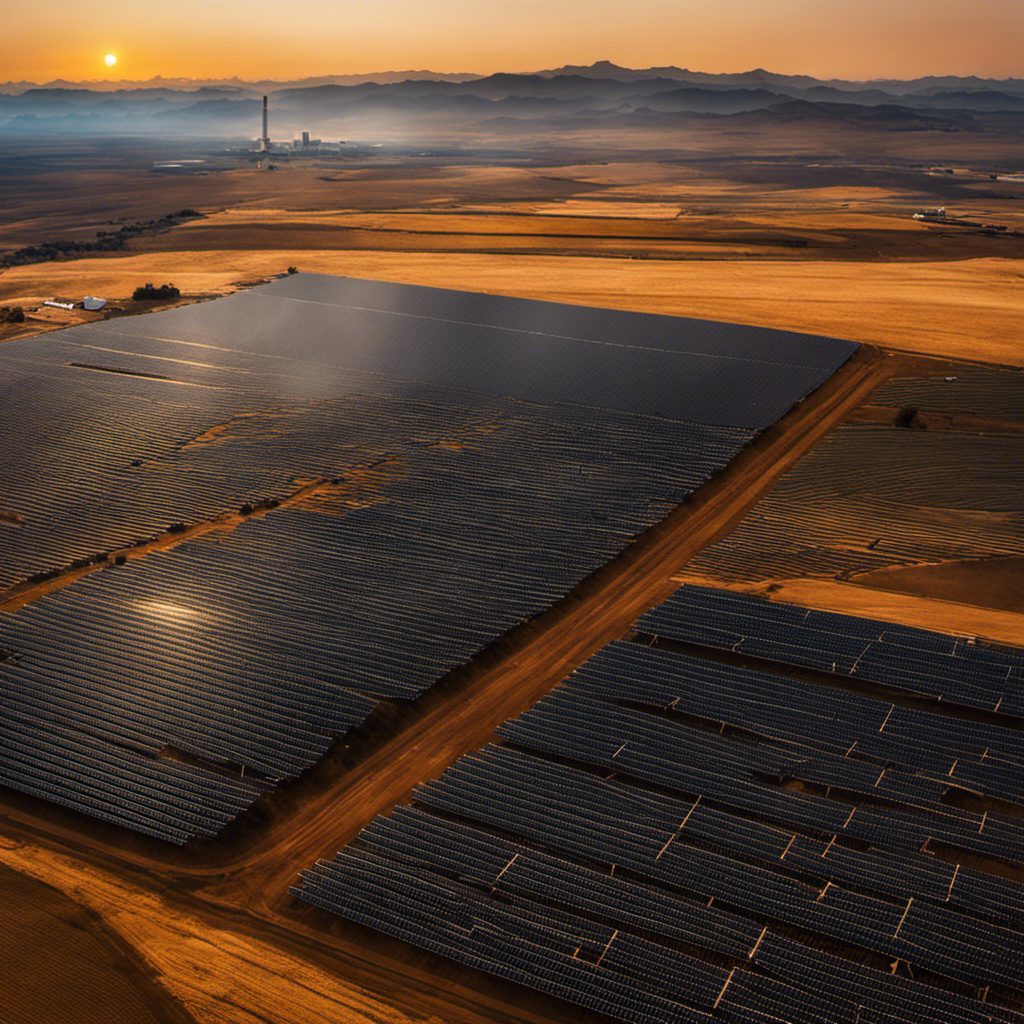
 Solar3 months ago
Solar3 months agoWhy Should We Use Solar Energy Instead Of Fossil Fuels
